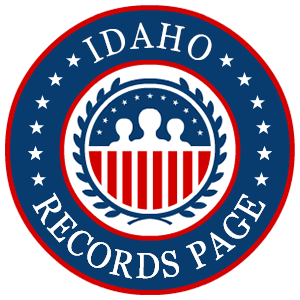Track down free Idaho divorce records today using this step-by-step resource and the official databases linked within.
Divorce records can be useful for several reasons, including remarrying and genealogy research. Access to this information is possible due to the Idaho Public Records Act and the federal Freedom of Information Act (FOIA), which dictate that records in custody of state, county and local agencies be made public.
In many cases, patrons may view these divorce documents via official databases for free; however, records can typically be requested in person, by phone, or via mail as well.
This resource offers official record custodian contact information and helpful aggregate links to help citizens acquire divorce records as seamlessly and quickly as possible in Idaho.
Are Divorce Records Made Public in Idaho?
Divorce records in Idaho are generated as part of court documents and are considered public information pursuant to the Public Records Act ID Code §74-102.1 These laws allow the public to request divorce records without providing a reason; furthermore, official agencies must respond to the request in 3 business days.
In addition, the Federal Freedom of Information Act (FOIA) guarantees the public access to records produced by federal agencies by permitting record requests.2 However, there are certain exemptions to records that are up for consumption including trade secrets, sealed documents and information pertaining to national security.
Nevertheless, some restrictions are placed on the general public when it comes to viewing details of divorce records or the ability to request copies. Citizens may obtain copies of dissolution decrees from the county that recorded the event—however, divorce records are confidential documents for 50 years from the date they were registered in Idaho.
This means that only eligible persons can view and request these records within this timeframe; they include parties (separated couple) to the documents, immediate family members and authorized persons such as legal representatives. Once the period passes, the public can freely view and request divorce documents in Idaho, barring sealed records.
The courts in Idaho issue divorce decrees to couples who have filed for petition for separation and which the judge has approved and authorized. These documents contain specifics about the annulment and can generally be accessed by the parties of the record and legal representatives.
Since divorce records in Idaho are not easily accessible to the general public, interested persons who need to acquire them can turn to third-party vendors. These companies can assist in finding dissolution records by combing government databases, which the state will not ordinarily provide. They may also find records in other states if the event’s location is still being determined.
Nevertheless, unless the state endorses these vendors, records that they provide cannot be used for official purposes.
Although divorce records in Idaho are not easily accessible to the general public, the census gives insights into the state’s dissolution rates. The Centers for Disease Control maintains these rates—this Federal agency reports that as of 2021, Idaho has a divorce rate of 3.4 persons per 1000 individuals.3
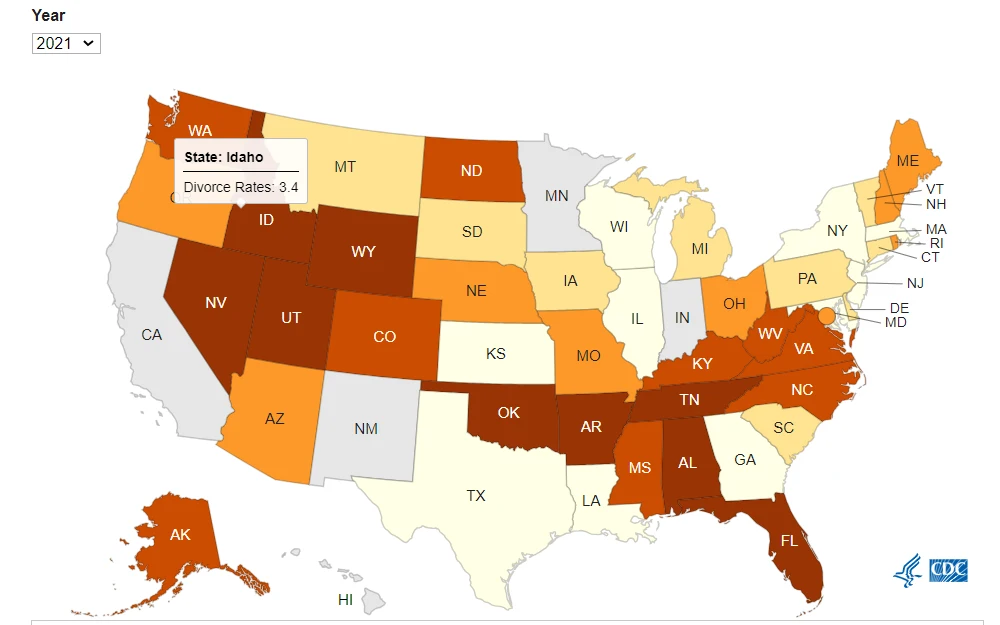
Of the 6,419 divorces that occurred in the state, 6200 were opposite sex, representing 96.6% of the total divorces—the rest were same-sex marriage dissolutions.4 Moreover, the number of divorces in Idaho increased by less than 1% in 2021, from 6,392 to 6,419 in 2022.
How To Search Idaho Divorce Records for Free
Citizens can search for divorce records at the state level by contacting the Idaho Department of Health & Welfare. The Idaho Department of Health & Welfare issues divorce certificates, which prove the separation took place and contain basic information about the dissolution—unlike decrees, which are official documents that the courts issue upon the termination of a marriage and contain more details.
Patrons may request dissolution records from the agency online and through mail requests—it does not however provide a way for the public to make in person requests. This state agency has custody of dissolution documents in Idaho filed from May 1947 to the present.
The cheapest way to request divorce records is by mail and is initiated by completing a Dissolution Certificate Request Form (Spanish version). Only individuals who have a tangible interest in the record may request a certificate of divorce—these include immediate family members and parties to the document.5 Thus, to prove eligibility, applicants must include acceptable identification in their request packet.
Costs for procuring certificates and processing can be found in this fee table.
Applicants can pay for the documents via money order or check payable to “Idaho Vital Records.” Mail all three documents to the Vital Records Office’s address below. Requested certificates are mailed to the requestor.
Idaho Bureau of Vital Records & Health Statistics
Post Office Box 83720
Boise, Idaho 83720-0036
Lastly, the Vital Records Office has authorized VitalChek, a third-party vendor, to process online orders. This company charges additional convenience fees for faster order processing. In addition to ordering certificates online, applicants may call the vendor at 877.315.4942 to place requests.
Contact the Idaho Vital Records Office for any inquiries by calling 208.334.5980 or emailing [email protected].
Finding Divorce Records via Counties & Cities in Idaho
The search for dissolution records at the state level offers citizens advantages, such as allowing for the widest search scope covering all counties. However, in many cases, patrons may need to contact county agencies to obtain copies of dissolution decrees.
Since county channels serve a smaller population, processing times for document requests may be quicker. These offices also have attentive staff that cater to patrons’ needs. County sources may also have online search features to view divorce records quickly for free.
The top three most populated counties in Idaho are Ada, Canyon and Kootenai. These three jurisdictions will showcase the search for divorce records at the county level.
Find Divorce Records in Ada County: Interested parties can acquire Ada County dissolution records from the County Clerk of Court. The public can view scant (limited) details of a divorce record from the Ada County Case Search Tool.6
Divorce records in Idaho are confidential. Therefore, patrons will get confirmation of the parties in the separation and the date of dissolution but will be barred from seeing the actual record.
The instrument can be searched using the record name or party name. Users should click on the ‘Advanced Filtering Options’ to select ‘Ada County’ from the “Filter by Location” drop-down menu; they will also need to limit the search to Family case records under “Filter by Case Type.”
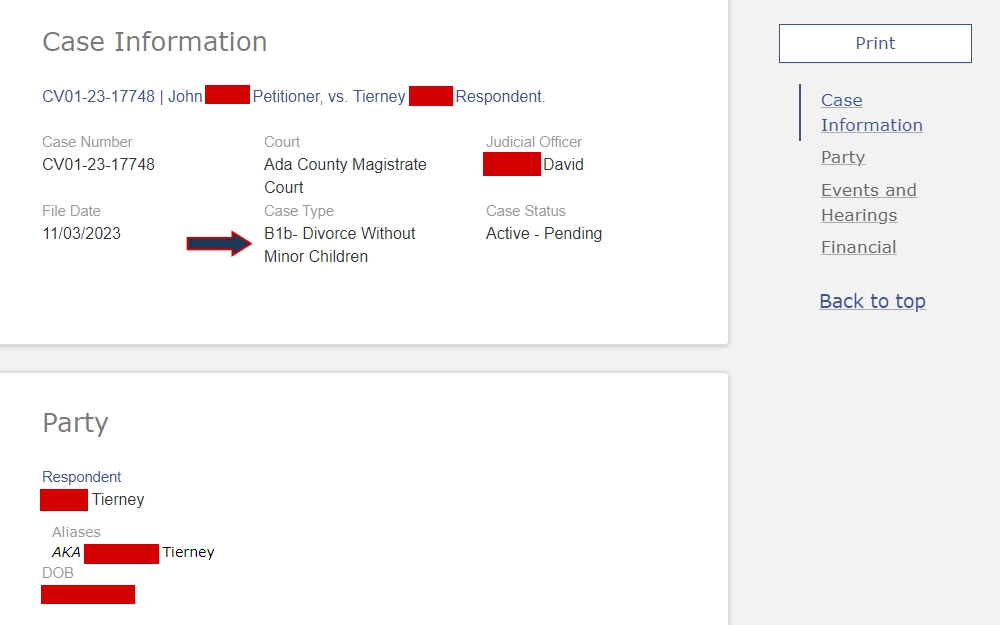
Alternatively, patrons may request for public records, which can be viewed in person, emailed, or mailed to the requestor. Applicants can request divorce records online.8 The court will issue certified and non-certified records—when the documents are ready, patrons will receive an invoice with the total cost.
Per Idaho code §31-3201, there is a $1.00 copy charge per page and an additional $1.00 for certification of each document.
Requestors will receive a notice within 3 working days of the court’s actions, and the agency will attempt to retrieve the file within 10 business days. In-person requests can be made at the Ada County Courthouse address below, Monday through Friday, 8 AM to 5 PM.
Ada County Courthouse
200 West Front Street
Boise, Idaho 83702
Phone: 208.287.6900
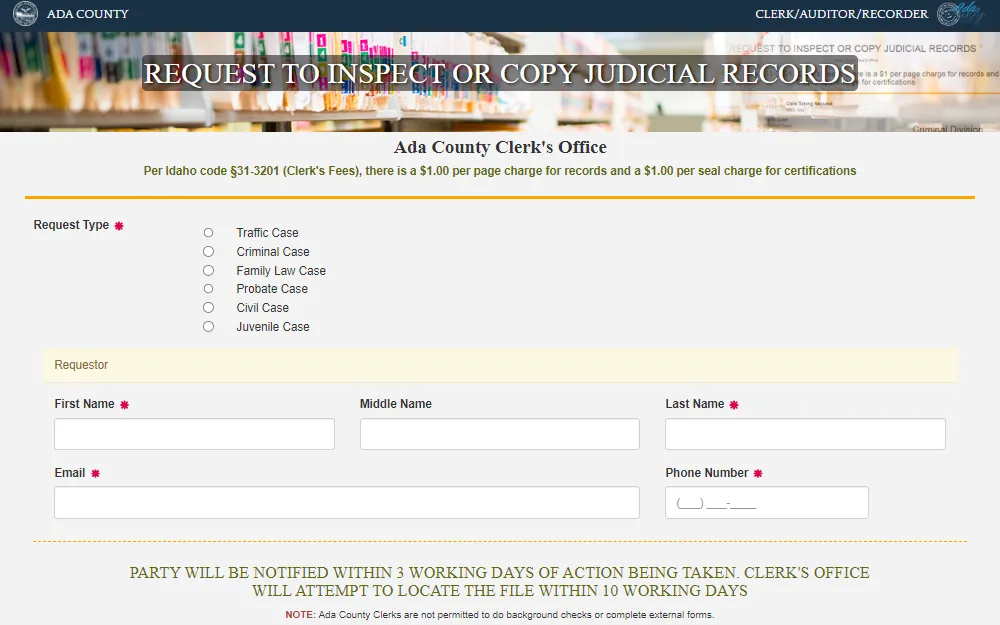
Search for Dissolution Certificates in Canyon County: Citizens who need to view and acquire divorce records in Canyon County may do so by contacting the Clerk of Court. Members of the public may obtain minor details of an annulment using the Canyon County Case Search Tool furnished by iCourt.6
The same criteria outlined above can be utilized to view parts of the divorce records; select ‘Canyon County’ from the “Filter by Location” drop-down menu.
Furthermore, patrons may electronically request copies of certified and non-certified divorce records.9 They will need to include the case number and name of the parties and specify the documents they are requesting, i.e., dissolution decree. Interested persons will also need to upload a copy of their ID to prove eligibility.
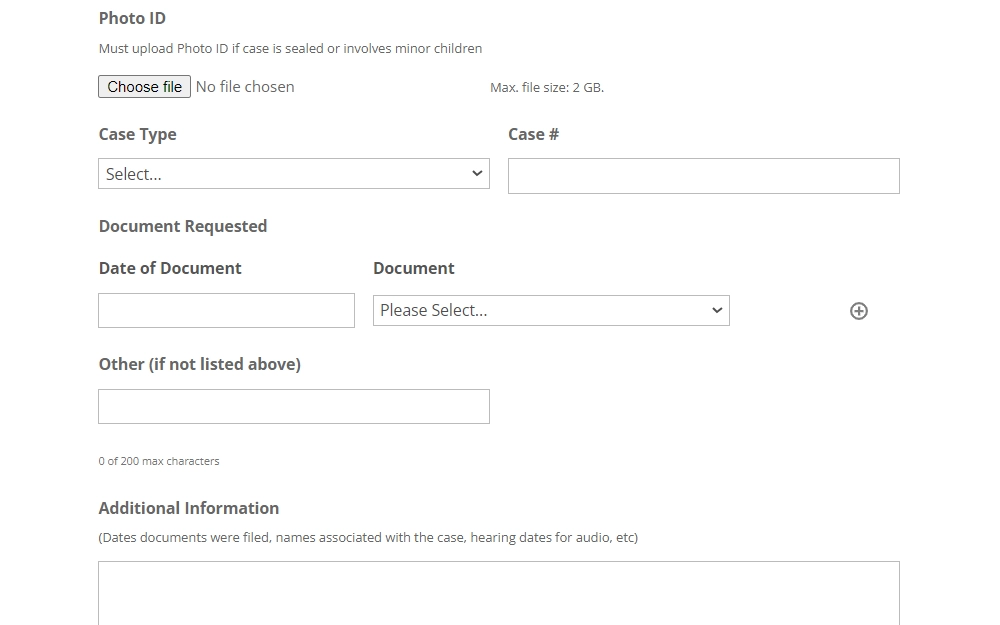
There is a $5.00 deposit for all searches paid when requesting, a $1.00 charge for each copy and the same fee for certification. Mail costs are $1.00 to $2.00—this is waived if the requestor sends a self-addressed envelope with money order or check. A $3.00 charge applies for credit card transactions.
Citizens can also view court records for free at the courthouse, which has an iCourt Portal Kiosk for public use. Patrons may also print records from these kiosks with the same applicable fees. Searchers may visit Room 334 at the address below during the walk-in hours of Monday through Friday, 9 AM to 12:30 PM and 1 PM to 3 PM.
Canyon County Courthouse
1115 Albany Street, ROOM 334
Caldwell, Idaho 83605
Phone: 208.454.7455
Email: [email protected]
Acquire Dissolution Certificates in Kootenai County: Interested parties can retrieve and view divorce records from the Kootenai County Clerk of District Court.
As with the other counties, citizens in the county can utilize the tool provided by iCourt as seen above. This tool is free and can confirm a divorce; nevertheless, information on the record will be restricted since dissolution records in Idaho are private.
Interested parties can request copies of divorce records (certified and non-certified) by email, mail, and in-person requests. Applicants can initiate mail and email requests by downloading and printing a Public Record Request Form. This form can be emailed to [email protected] or the address below.
Costs for obtaining these copies can be found in this fee policy. The county delivers records by mail, email or can be picked up in person at the courthouse.
Kootenai County Government
Attention: District Court Records Department
Post Office Box 9000
Coeur d’Alene, Idaho 83816
Lastly, interested parties can order divorce records using the same form and drop them off at the courthouse, whose address is below. This is also the location where they can choose to pick up the requested documents.
Kootenai County Justice Building
324 West Garden Avenue
Coeur d’Alene, Idaho 83814
Phone: 208.446.1650
Acquire Divorce Records from Local Jurisdictions: In some cases, patrons may seek dissolution documents from local public agencies such as municipal courts and town clerks. A search through the 3 most populated centers in the state will be used to determine whether this is an occurrence when looking for divorce records: Boise City, Meridian, and Nampa.
The City of Boise permits citizens to request public data that pertains only to the city; therefore, residents looking for divorce records must turn to Ada County. The same applies to Meridian; residents will need to contact the Ada County Clerk of District Court.
The Nampa City Clerk’s Office advises interested parties that it is not in the custody of vital and court records and that individuals must seek divorce documents from the Canyon County Courthouse or the Idaho Bureau of Vital Records and Health Statistics.
Tracking Family Lineage & Genealogy Through the Idaho State Divorce Archives
Citizens will often need to look for older divorce records for genealogy purposes and to research their ancestral lineage. They may do so by contacting several state and county agencies to search divorce indexes; these include the Idaho State Archives Genealogy, District Courts, newspapers and public libraries.
Patrons may search older divorce records online or visit the Idaho State Archives in Boise. Citizens can find older divorce records from the searchable catalogs, which include the following:
- ArchivesSpace— This database contains manuscripts, photos, and oral histories.
- Chronicling America— The Idaho Digital Newspaper Project has a collection of more than 80 historic newspapers that users can search using keywords for articles from 1863-1925.
- Koha— Koha is an open source library system to index information within the research center.
In addition, interested persons can submit research requests to the Research Center staff, who offer 30 minutes of free reference time. If the request requires more time, the Archives will charge $38.00 per hour for up to two hours. They may also mail their requests to the address below.
Idaho State Archives
2205 Old Penitentiary Road
Boise, Idaho 83712
Citizens can visit the Idaho State Archives at the address above during business hours to perform a free public divorce records search. For more information, contact the ID State Archives by calling 208.334.2682 or emailing [email protected].
The District Courts also provide a viable source of older divorce records. District courts maintain dissolution records from 1864 to the present. At the state level, patrons may also contact the Idaho Department of Health & Welfare – Vital Statistics Unit for records that date back to 1947.
Moreover, the Library of Congress maintains a collection of Idaho digitized newspapers ranging from 1756-1963—this index can be queried using keywords and is free for public use.10
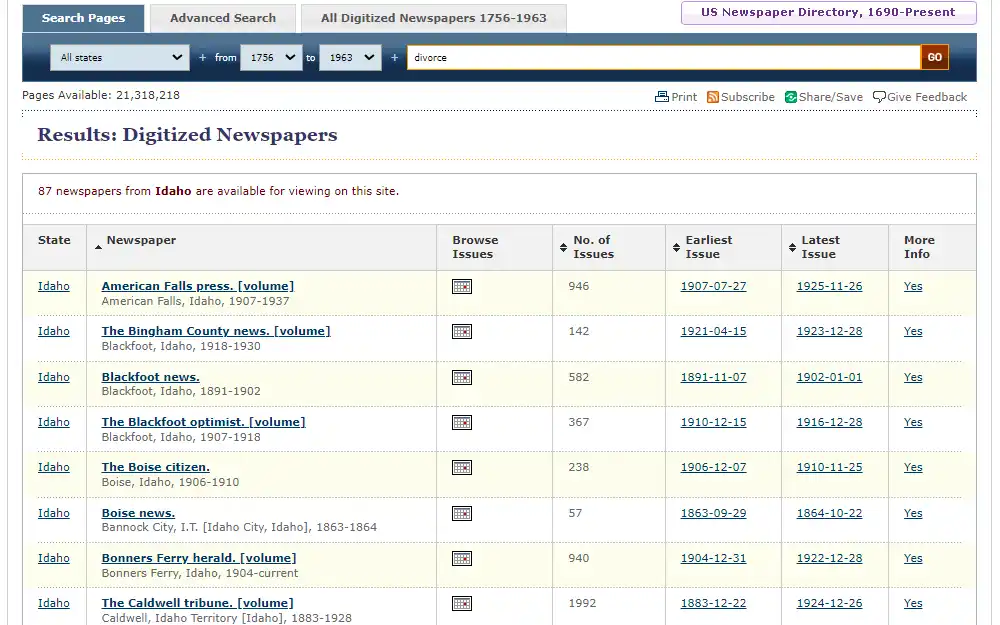
Lastly, citizens can contact these Idaho libraries that may host historical divorce records.
How To Find Details of Dissolutions of Marriage & Common Law Divorces Throughout Idaho
Common law marriages have been illegal in Idaho since 1996; however, the state will recognize those unions that took place before this year.11 Couples from these matrimonies have the same rights and privileges as those from traditional marriages.
Consequently, couples from these types of unions can have dissolution proceedings at the District Courts; therefore, interested parties can locate common law divorce records from the county and state agencies.
Citizens can turn to the District Courts to obtain certified and non-certified copies of dissolution decrees. Judges issue dissolution decrees to common law and traditional couples upon approval of a lodged application. Records are created,, and copies of these decrees can be sought at the District Courts, or from Idaho’s Vital Statistics Office.
However, this office only issues certificates of divorce as records showing the vital event took place.
In addition, limited information can be sought online about dissolution records from the public through iCourt.
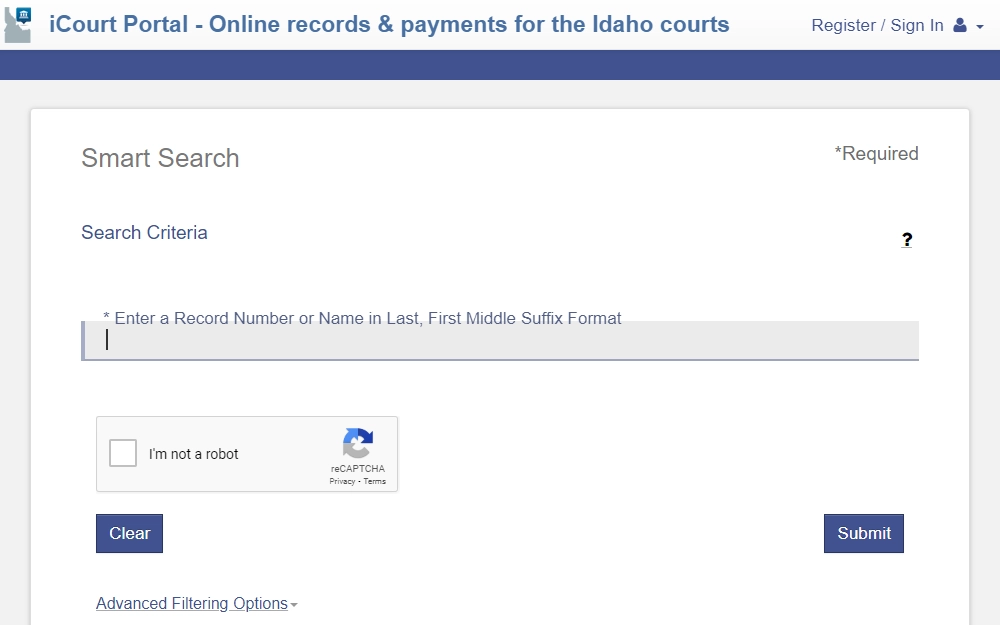
Since dissolution records are private information, case documents will not reveal details about the divorce when queried by the public; nevertheless, citizens may get confirmation of a separation having taken place when using this resource. The process of doing this was delved into in earlier sections.
How To Approach the Divorce Process in Idaho: Filing & Addressing Divorce Papers
Married couples who need to file for a divorce petition will need to contact the District Courts. There are certain conditions that couples will have to satisfy to be eligible to file for separation—these include residency requirements and having grounds for divorce.
In Idaho, the residency prerequisites are minimal compared to other states; couples only need to live in the state for at least 6 weeks before filing for a separation.
Moreover, Idaho is a fault and no-fault state. This means that couples can file for separation when they have certain grounds for divorce on the part of the ex-husband or wife such as adultery, desertion or cruelty. At the same time, couples can qualify for no fault divorces if they can prove that they have irreconcilable differences that have caused a marriage breakdown or if the couple can prove they have lived apart continuously for more than 5 years.
Couples must follow these instructions when filing for divorce in Idaho.
There are two categories of divorces in Idaho: uncontested and contested. Uncontested divorces occur when both parties agree to important aspects of their dissolution; these include asset sharing (determined by a divorce appraisal), child custody and alimony if applicable. Contested divorces involve dissolutions where the couple do not agree on the matters above.
These divorces are further subdivided into separations with and without minor children.
It is advisable to enlist the services of legal counsel when initiating divorce proceedings to help couples navigate laws in the state; this is particularly true for contested divorces, which can draw out for months.
These are instructions for a summary of steps to take when filing for divorce in Idaho. In addition, couples may also view these steps for divorce without minor children and with minor children. Moreover, Idaho provides a court assistance office in all counties to aid those self-representing themselves in divorce cases by providing services such as availing the necessary forms.
Uncontested Divorces: Each county will have varying forms and processes to conduct divorce proceedings, and it is best to contact the county where the dissolution will occur. To initiate a separation, either the ex-wife or husband will file several forms, including:
- A petition for divorce with children or without children.
- Summons
- Certificate of Divorce or Annulment
- Family Law Case Information Sheet
If the couple has minor children, then there are additional forms and paperwork that they will need to fill—these include Affidavit Verifying Income, Shared or Split Custody Child Support Worksheet and Standard Custody CS Worksheet.12, 13 Moreover, they must attend parenting classes, which must be documented.
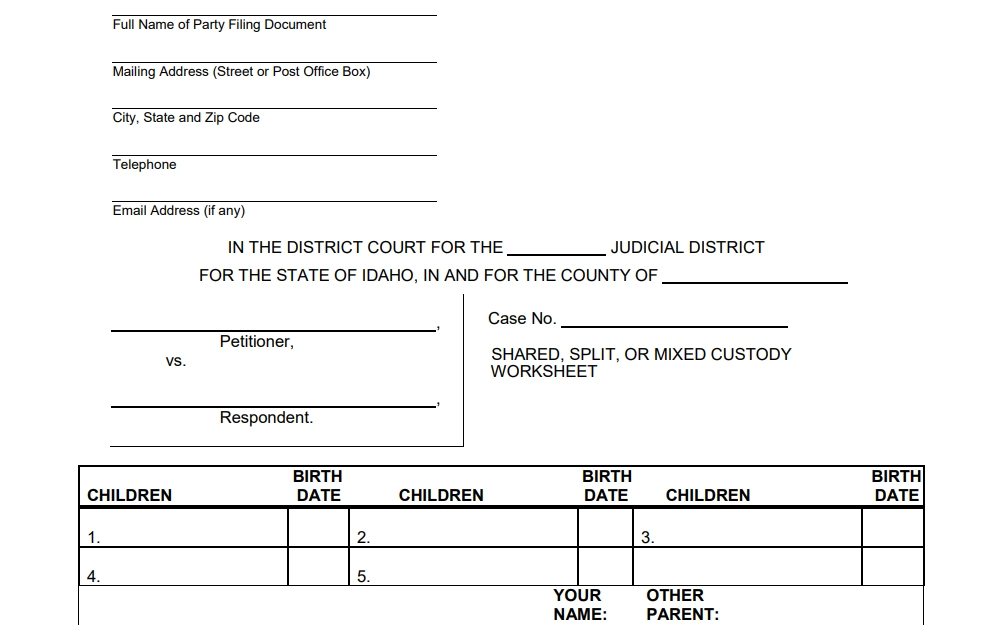
Submitted paperwork must accompany filing fees, which as of 2021, are $207.00. However, if the couple cannot afford this or fees to have the sheriff serve dissolution papers, they may request a waiver by filing a Motion & Affidavit for Fee Waiver and preparing an Order RE: Fee Waiver.
Uncontested divorces typically resolve quickly (30 to 60 days) and are less expensive since no disputes are fought in court. Consequently, judges need only to review and approve the couple’s marital settlement agreement and issue the dissolution decree.
Contested Divorces: These divorces are often lengthy and expensive since the couple does not agree on matters. After filing for separation, a spouse must provide the defendant (other spouse) a notice of the dissolution by serving them divorce papers (copies of forms filed in court). The spouse cannot serve these papers to the defendant; this task must be left to someone at least 18 years old and not a party to the case.
In the ideal scenario of a cooperating defendant, the spouse can simply have them fill out an Acknowledgement of Service and file this with the court; in this way, there is no need to serve the defendant formally.
When the defendant is not cooperating, the spouse can hire a third-party to serve the papers; this can be a sheriff or a professional server. This person must send the spouse a completed Affidavit of Service to file in court as proof that the dissolution papers were served.
If the defendant’s location is unknown, then the spouse can serve the papers via publication, but only after reasonable attempts have been made to locate the defendant.
Idaho courts cannot grant a final dissolution decree until at least 21 days after filing and service of papers under ID Code § 32-716.14 However, contested divorces, in reality, can take 6 or more months to resolve.
Sometimes, couples may not agree on matters but believe they can work together to iron out their differences. In these cases, couples can opt for mediation from a third-party mediator. This is less expensive than fighting in court with lawyers and can even be done remotely online.
The spouses can file for an uncontested divorce if the process is successful.
Divorce records are partially available for public consumption in Idaho; this resource provides concise information and tools to citizens to aid them in their search for these Idaho divorce records and explains how to initiate dissolution proceedings.
Conveniently obtain additional public information on citizens of this state by checking out the Idaho marriage lookup tutorial or the overview of finding all free ID public records (inmates, warrants, arrests, property, court cases, etc.).
References
1Idaho State Legislature. (n.d.). Title 74 Transparent And Ethical Government – Chapter 1 Public Records Act. Idaho Statutes. Retrieved February 6, 2024, from <https://legislature.idaho.gov/statutesrules/idstat/title74/t74ch1/sect74-102/>
2U.S. Department of Justice, Office of Information Policy (OIP). (n.d.). Freedom of Information Act Statute. FOIA.gov. Retrieved February 6, 2024, from <https://www.foia.gov/foia-statute.html>
3Centers for Disease Control and Prevention, National Center for Health Statistics. (2023, February 10). Divorce Rates by State: 2019-2021. Retrieved February 6, 2024, from <https://www.cdc.gov/nchs/pressroom/sosmap/divorce_states/divorce_rates.htm>
4Idaho Department of Health and Welfare Communications. (2024, January 9). DHW publishes 2022 Marriage and Divorce Report. Retrieved February 6, 2024, from <https://healthandwelfare.idaho.gov/dhw-voice/dhw-publishes-2022-marriage-and-divorce-report>
5Idaho Department of Health and Welfare, Bureau of Vital Records and Health Statistics. (2020, December). Direct and Tangible Interest. Retrieved February 6, 2024, from <https://publicdocuments.dhw.idaho.gov/WebLink/DocView.aspx?id=17337&dbid=0&repo=PUBLIC-DOCUMENTS>
6Idaho Courts, iCourt Portal. (n.d.). Smart Search. Retrieved February 6, 2024, from <https://mycourts.idaho.gov/odysseyportal/Home/Dashboard/29>
7Idaho Courts, iCourt Portal. (n.d.). Party Search Results. Retrieved February 6, 2024, from <https://mycourts.idaho.gov/odysseyportal/Home/WorkspaceMode?p=0>
8Ada County Clerk’s Office. (n.d.). Request to Inspect or Copy Judicial Records. Retrieved February 6, 2024, from <https://apps.adacounty.id.gov/clerkauditorrecorder/carpublicrequests/>
9Canyon County Clerk. (n.d.). Court Records Request. Retrieved February 6, 2024, from <https://www.canyoncounty.id.gov/court-records-request/>
10Library of Congress. (n.d.). Results: Digitized Newspapers. Chronicling America. Retrieved February 6, 2024, from <https://chroniclingamerica.loc.gov/newspapers/idaho/>
11Idaho State Legislature. (n.d.). Title 32 Domestic Relations – Chapter 2 Marriage — Nature And Validity Of Marriage Contract. Idaho Statutes. Retrieved February 6, 2024, from <https://legislature.idaho.gov/statutesrules/idstat/title32/t32ch2/sect32-201/>
12Idaho Court Assistance Office. (2017, July 1). Shared, Split, Mixed Custody Child Support Worksheet. Retrieved February 6, 2024, from <https://courtselfhelp.idaho.gov/docs/forms/CAO_FL_1-12.pdf>
13Idaho Court Assistance Office. (2017, July 1). Standard Child Support Worksheet. Retrieved February 6, 2024, from <https://courtselfhelp.idaho.gov/docs/forms/CAO_FL_1-13.pdf>
14Idaho State Legislature. (n.d.). Title 32 Domestic Relations – Chapter 7 Divorce Actions. Idaho Statutes. Retrieved February 6, 2024, from <https://legislature.idaho.gov/statutesrules/idstat/title32/t32ch7/sect32-716/>
